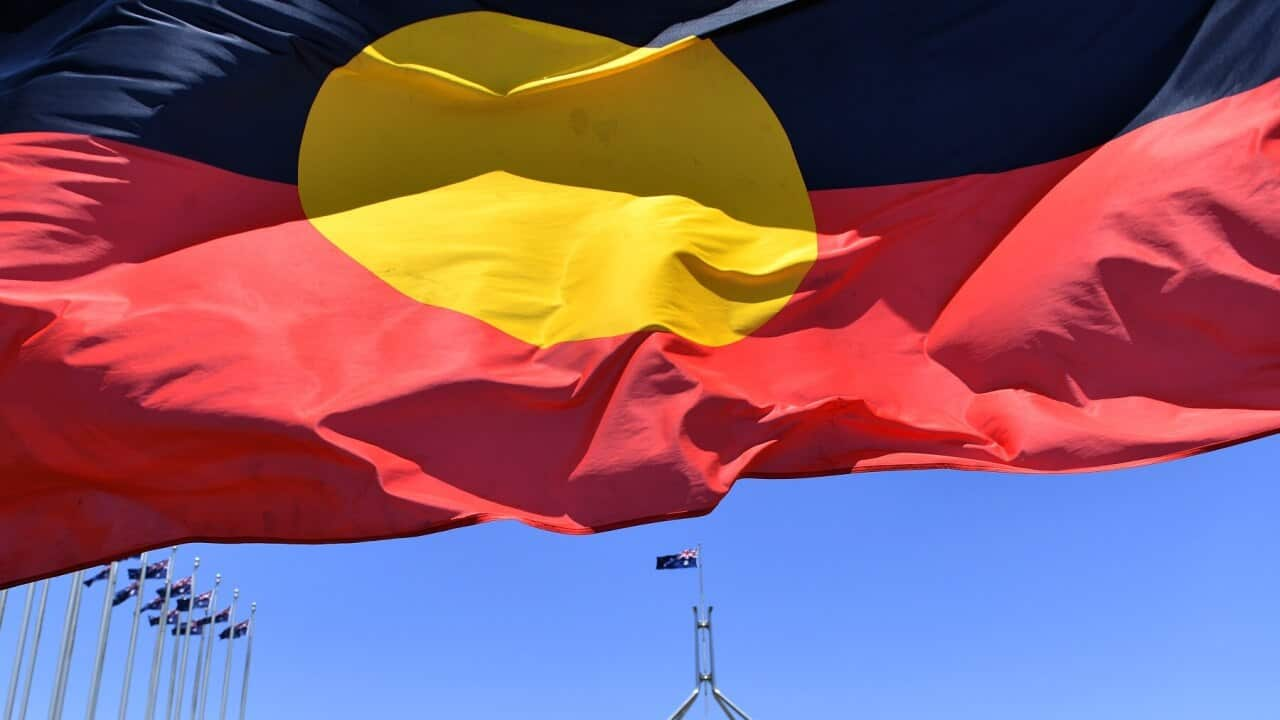On Tuesday night, the government handed down its final budget before Australians head to the polls, presumably in May.
It's being sold as a budget to ease costs of living, and includes lots of short-term sweeteners for much of the electorate.
One of the biggest single investments has gone towards Indigenous rangers, with the government pledging $636.4 million over six years to expand Indigenous management of Country.
In another big ticket item, the commonwealth has pledged $408 million for remote housing in the Northern Territory. However on the whole, critics say Indigenous funding has fallen short.
However on the whole, critics say Indigenous funding has fallen short.

More than half the houses in remote Indigenous communities in the NT are considered overcrowded. Source: AAP
Pat Turner, co-chair of the Coalition of Peaks and the National Aboriginal Community Controlled Health Organisation's CEO, said the federal budget was lacking in targeted spending.
"This government has had three big spending budgets of late and there has been a lot of missed opportunities," Ms Turner told NITV News.
'Unconscionable' health funding gap
Ms Turner said the greater burden of disease carried by First Nations people in this country was not addressed in last night's budget.
"As long as the $4.4 billion funding gap remains, we cannot expect the unconscionable health gap to close," the Gudanji-Arrernte woman said. The government has pledged support for health and vaccination services for rural and remote Indigenous communities at risk of severe illness from COVID-19 at a cost of $43.3 million, while funding has also been slated for hearing health, blood-borne diseases, and rheumatic heart disease.
The government has pledged support for health and vaccination services for rural and remote Indigenous communities at risk of severe illness from COVID-19 at a cost of $43.3 million, while funding has also been slated for hearing health, blood-borne diseases, and rheumatic heart disease.

A Beagle Bay community member receives a coronavirus vaccine in the Kimberley region. Source: AAP
"Aboriginal kids aged between five and 15 years old are 50 times more likely to die from rheumatic heart disease than other Australian children.
"I was hoping that we would get a substantial investment," Ms Turner said.
Government 'doesn't care about us'
The government has committed to reducing the reduce the rate of Aboriginal and Torres Strait Islander young people in detention by at least 30 per cent by 2031.
But justice advocates said a lack of investment in targeted spending to address the over-incarceration of First Nations people of all ages fell short of their expectations. "It's very disappointing. We are not seeing the investment match their commitment," said Change the Record's Cheryl Axleby.
"It's very disappointing. We are not seeing the investment match their commitment," said Change the Record's Cheryl Axleby.

Change the Record's Cheryl Axleby said the federal budget has failed to deliver for First Nations people. Source: Supplied
"We've had five Aboriginal deaths in custody this year, we are still experiencing high incarceration rates for our people in this country."
Ms Axleby said the federal budget showed the government's priorities were not on First Nations spending.
"The budget reflected this government's priorities at the moment," the Narungga woman said.
"It sends a very clear message that it doesn't really care about us as First Nations peoples."
The government will commit to extending Custody Notification Services in Western Australia and the Northern Territory, with just under $2 million dollars being pledged.
Youth justice programs in WA's Pilbara and Kimberley are also set to receive funding if the Coalition is re-elected.
However, Ms Axleby said there was a lack of direct investment in the National Agreement on Closing the Gap targets with little funding for justice, early education, and learning or violence against women.
"The government has not committed any new funding to the Closing the Gap initiatives.
"We need that further investment to make things happen. This government is making it very clear that they're not going to invest."


